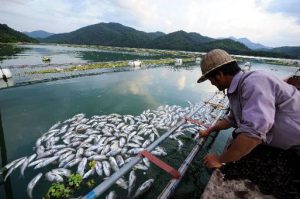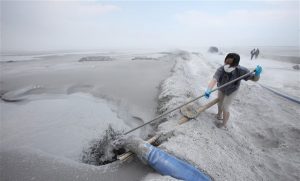The curse of corruption that frequently surrounds resource-rich countries, such as oil-rich Angola, is now enveloping Chinese companies, warns a report by the NGO Global Witness.
According to the report, many resource-rich countries that China does business with have been hit by conflict and corruption.
Read also: China’s uncomfortable diplomacy in South Sudan
Incoming Chinese president Xi Jinping has already spoken out about the risk that corruption plays to China’s national wellbeing and security. Global Witness is now calling for companies working overseas to also start running responsible and transparent operations.
The report cites three recent cases of corruption that affect Chinese interests:
– Unanswered questions in the Democratic Republic of Congo regarding the accounting of nearly US$24 million of the Chinese government’s “signature bonus” payment for a major resource-for-infrastructure agreement. A Congolese parliamentary commission alleged that it was diverted into an offshore company by Congolese partners.
– International Monetary Fund estimates that, between 2007 and 2010, US$32 billion in public funds went missing in oil-rich Angola, a country with significant Chinese extractive company activities.
– A lack of transparency in
oil operations in Sudan and South Sudan operated by Chinese and other companies has fuelled mistrust and conflict between the two countries, leading in early 2012 to the total shutdown of production in South Sudan and the military occupation of a major processing facility along the border in Sudan. Both actions have come with a significant cost to Chinese companies and the international oil market.
Global Witness say financial disclosure regulations for companies listed on the Shanghai Stock Exchange (SSE) could help reduce corruption.
“More transparency would bring mutual benefits for companies, investors and local populations in resource-rich countries and in China,” said Gavin Hayman, Director at Global Witness. “We’re seeing Chinese respondents in particular recognise the long-term value for companies that comes from improving the transparency of their corporate governance and social responsibility practices.”
Together with the consultancy firm Syntao, which co-authored the report, Global Witness recommend that the SSE review its existing disclosure requirements targeted at the extractive industry. In particular, the SSE should follow international best practice standards and require extractive companies to provide details on payments to domestic and host governments on an annual basis.
“The Shanghai Stock Exchange could mark itself out as a global leader by introducing a requirement for extractive companies to disclose payments made overseas,” said Hayman. “Our report shows there is a growing appetite among key industry stakeholders for them to take this valuable next step.”





